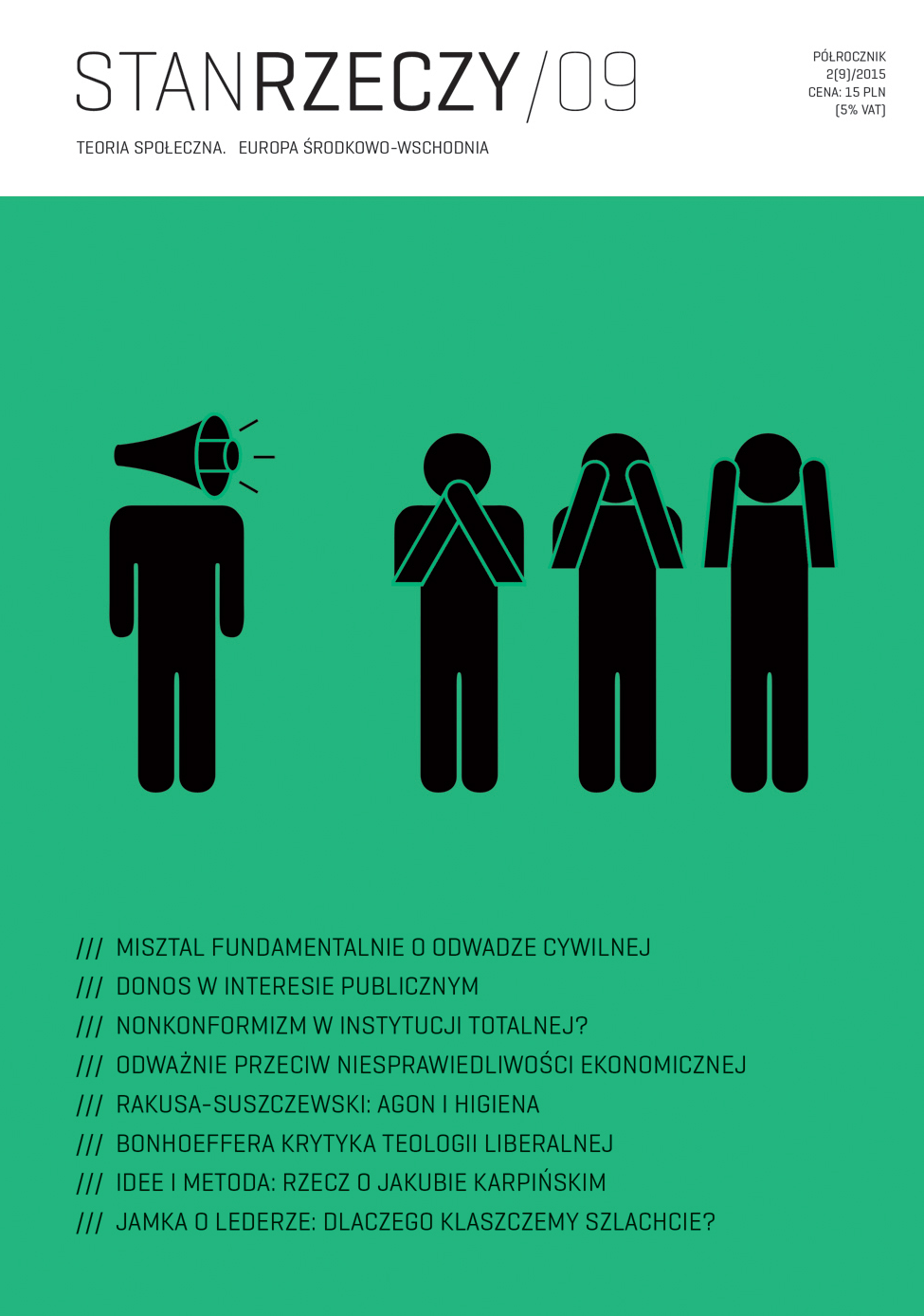
We kindly inform you that, as long as the subject affiliation of our 300.000+ articles is in progress, you might get unsufficient or no results on your third level or second level search. In this case, please broaden your search criteria.


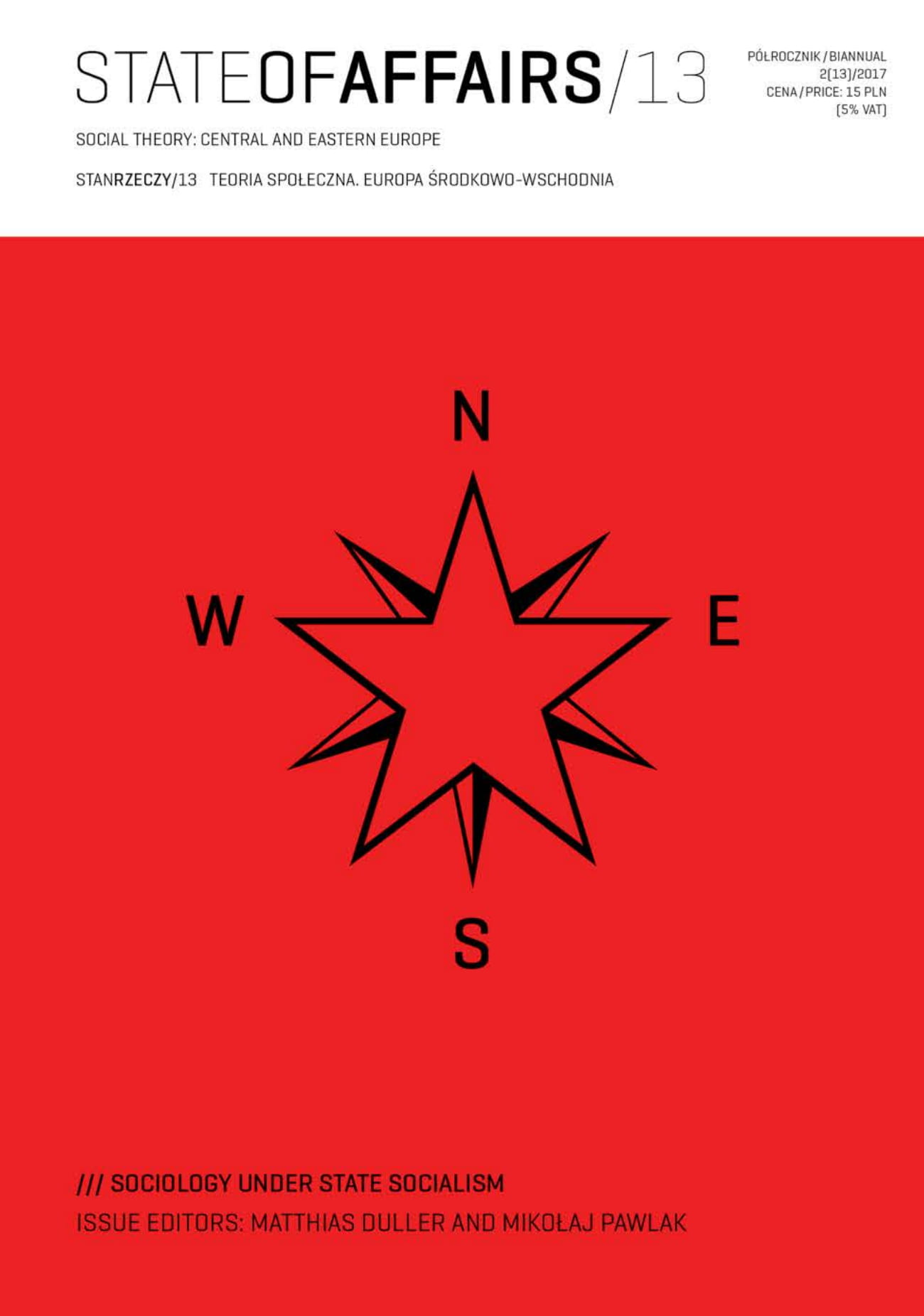

The model of society put forward by Marxist theoreticians as descriptive of a post-revolutionary society had a quasi-constitutional status in countries that claimed to adhere to Soviet-type socialism, particularly those of Eastern Europe. As the model’s main function was to legitimise the actions of those who wielded power, it acquired doctrinal significance. In the Eastern European countries, the history of the sociology of social structure and stratification clearly illustrates the conservative nature of official doctrine. However, the real mechanisms of society, in so far as they deviated from the official paradigm, upset doctrinal stability and may consequently have led, if not to a revision of the official dogmas, then to the acceptance of a certain degree of flexibility. In order to understand the development of the theoretical analysis of social stratification and social inequalities (the most sensitive area of debate) in totalitarian and post-totalitarian Soviet type societies, it must be noted that post-war sociology has reflected a continuing effort by sociologists to create an independent scientific framework for their discipline. This is why we try, in this article, to combine evaluating the attitudes of different Eastern European sociologists from across the political spectrum with the evolution and adaptation of their theoretical approaches and creativity.
More...
The post-war history of Romanian sociology followed a tortuous path, similar to the evolutions within other countries of the Soviet Bloc. Defined as a “bourgeois” and “reactionary” social science, sociology was purged from the academic field for almost two decades. Its subsequent re-institutionalisation in the mid-1960s was a process largely influenced by social evolution in Romania (industrialisation, urbanisation, and the collectivisation of agriculture), but also by the desire to re-connect the Romanian social sciences to the international field of dialogue and debates. My paper discusses not only the institutional articulation and development of sociology in communist Romania, but also how the discipline was re-imagined and re-contextualised by the regime.
More...
For all the post-war decades sociology in Poland has been focused on problems that are typical of peripheral modernising societies. The aim of this text is to identify, from today’s perspective, successive stages of sociology’s development after the Second World War. In the beginning, sociology was focused on perceiving the communist revolution as a social laboratory. In the 1960s and 1970s, Polish society underwent enforced industrialisation and urbanisation. In the next decade, studies were dominated by critical analysis of the communist system in crisis. After 1989, social scientists started to study the post-communist transformation, which was seen as a “return to normality.” The entire time, sociological studies oscillated between the monitoring of project implementation and the recording of new grass roots processes. The author considers that sociology’s recent departure from the narrative of catching up and imitation creates a chance for a more precise view of social processes in Poland.
More...
This article covers the development of sociology as a scientific discipline in Belarus in the period of the 1960s through 1980s. It analyses the close interrelation between sociological and philosophical knowledge. It also looks at the phenomenon of the double identity of the sociologist and the philosopher, leading to their reciprocal influence. The indirect influences of Western sociological and philosophical conceptions are explained as an important source of sociology’s development. Analysis shows that some Western ideas were known rather well and were presented in academic publications and textbooks in the form of “criticism of bourgeois science,” which, despite its critical form, could often provide real information. Analysis of the main texts (monographs, textbooks, and dictionaries, as well as memoirs) helps to cover the main problems, approaches, works, and concepts that were transferred to, and referred to, in Belarusian sociology in the period of the 1960s through 1980s. The process of transfer had a slow but permanent and constant character and the usage of Western conceptions became ever more normal and legitimated. The findings reveal the real importance of “Western” knowledge as a “shadow” factor in the development of sociology (often in close connection with philosophy) in Soviet Belarus in the 1960s through 1980s.
More...
This paper addresses the following research question: what shaped the emergence of sociological research during the period of late socialism in Albania? The second aim of the paper is to reveal the causal mechanism by which a liberalised cultural policy brought about a shift. The traditional role of the socialist intelligentsia lessened in importance while the role of social scientists emerged. In the very final years of the state socialist regime, in 1989 to 1990, these latter were pitted against Party cadres and representatives in defending a limited yet free academic practice. In order to explain the intricate, early process of the emergence of sociology under state socialism in Albania, this paper utilises a layered theoretical framework that tries to capture the interaction between stages of regime development, the coexistence of various competing modes of legitimation, and the transformation of the heteronomous sector of cultural production into an emergent field of cultural production.
More...
This article concerns the Warsaw School of Marxism, which was created at the University of Warsaw after the Second World War and functioned simultaneously with the famous Warsaw School of the History of Ideas. The Warsaw School of Marxism was formed in the circle of Julian Hochfeld, a pre-war socialist who not only wanted to bring Marxism into the social sciences and culture in Poland but also to redefine it in order to use it to analyse socialist societies. Inspired by Hochfeld’s ideas, his pupils – including Zygmunt Bauman, Włodzimierz Wesołowski, Maria Hirszowicz, Jerzy Wiatr, Witold Morawski, and Aleksandra Jasińska-Kania – engaged in original reflection and research. Some of their studies came to be seen as milestones for sociology in Poland. The history of the school is presented here in the context of the social and political changes occurring in the Polish People’s Republic: Stalinism, the “Polish Way to Socialism” after 1956, and the breakthrough between the 1960s and 1970s. The history of the school is interesting in itself and can also serve to further an understanding of the dynamics of “real socialist” societies within the framework of totalitarianism.
More...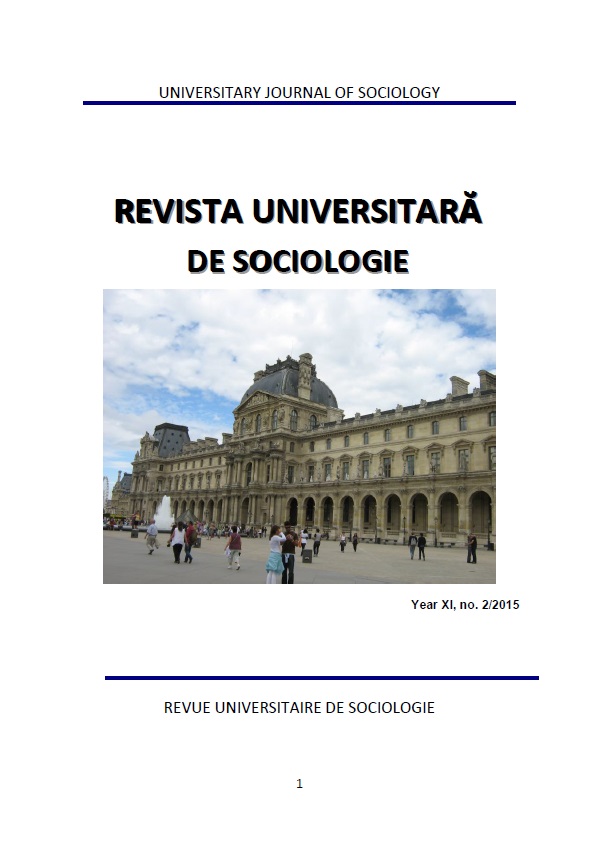

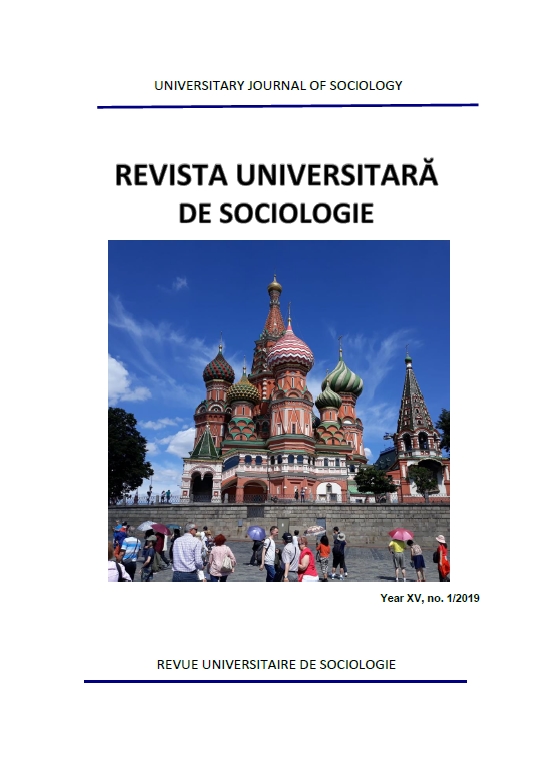
Man is a social and a personal being, but is also a spiritual one. He does not live concerning himself only with material or problems, but try to understands his own existences, and the existence of the world. One issue that affects his existence on all these levels is the problem of evil. The problem of evil is pervasive an is not easy to discern or to tackle it accordingly, thought one should not allow himself to think evil consists in the wrong structure of society. Evil lurks moreover in the soul of man, but his soul exists and moves in society. And it is associated with the problem of liberty. Evil and liberty belong together. The sociology of Jacques Ellul, his sociological work and his theological, offer some insights in the matter at hand. The evil can be named according to hum the technological system, or le système technicien. This paper offers some insight in Ellul’s conceptions and adds some insights from other thinkers, so that it may become clearer what he means, and where the roots of this technological system or technological man lay. His views on technological society are true, and such things existence of explicit transhumanist theoretical positions, or the social changes that are imposed unto the societies today do attest his views.
More...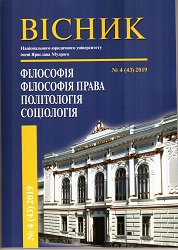
Problem setting. Successful professional socialization is an important condition of further professional as well as entire life success of any person. In modern conditions it is determined by many factors, one of which is globalization.Recent research and publications analysis. The scientific literature focuses on the study of specific aspects and stages of the professional socialization: identifying features of university education for future specialists and professional activities of graduates, analysing the value orientations of young people in regard to labour issues as well as their competitiveness in the labour market, etc. However, professional socialization of young people in the context of globalization has been studied insufficiently.Paper objective. Identification of the essence of professional socialization of youth and the impact of “globalization factors” on this process.Paper main body. Globalization has significantly increased the intensity and dynamism of professional socialization, it has also added some new features to this process. Information hegemony has ensured active intellectualisation and virtualization of labour activity, has boosted the need for its creativeness; information resources have become the core of human capital. The labour market globalization, in addition to stimulating international migration, has shaped certain requirements imposed on the global labour force. These factors have led to a change in the professional paradigm of society, raising the requirements for professional socialization at all of its stages.Conclusions of the research. Today, globalization, considering all of its aspects, has become one of the significant factors affecting the professional socialization of young people.
More...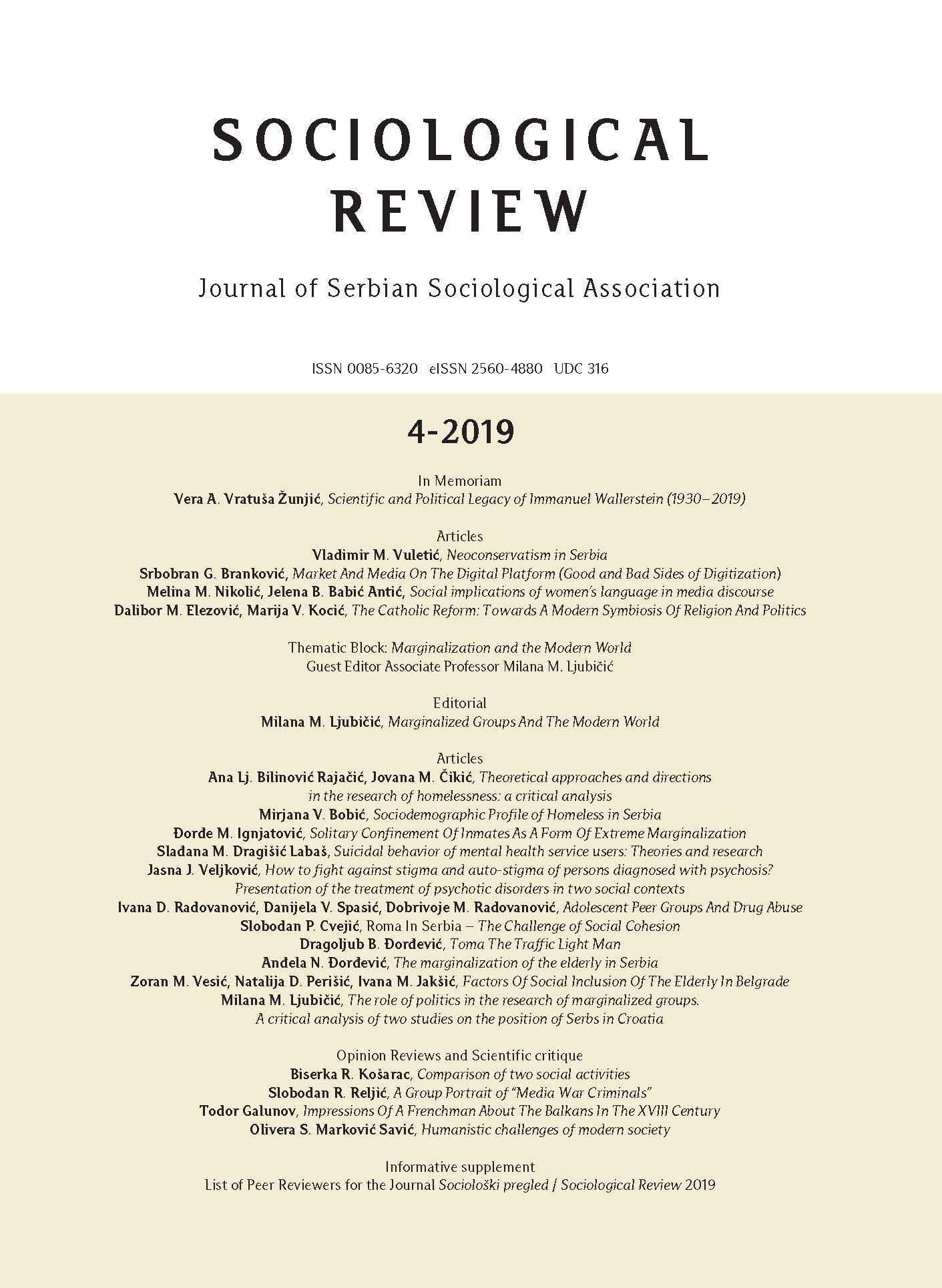
The paper gives an overview of Dalibor Elezović’s book Balkans in letters: the impressions of an 18th-century Westerner. It is about the book based on epistolary material, created from the pen of an unknown Frenchman who toured the Balkans in the eighteenth century. The book deals with the study of epistolary discourse, which is a current issue of contemporary historical science and other social sciences. The focus is on the importance of letters from a Westerner on the image of the Balkans in the eighteenth century since there are not many sources of similar content.
More...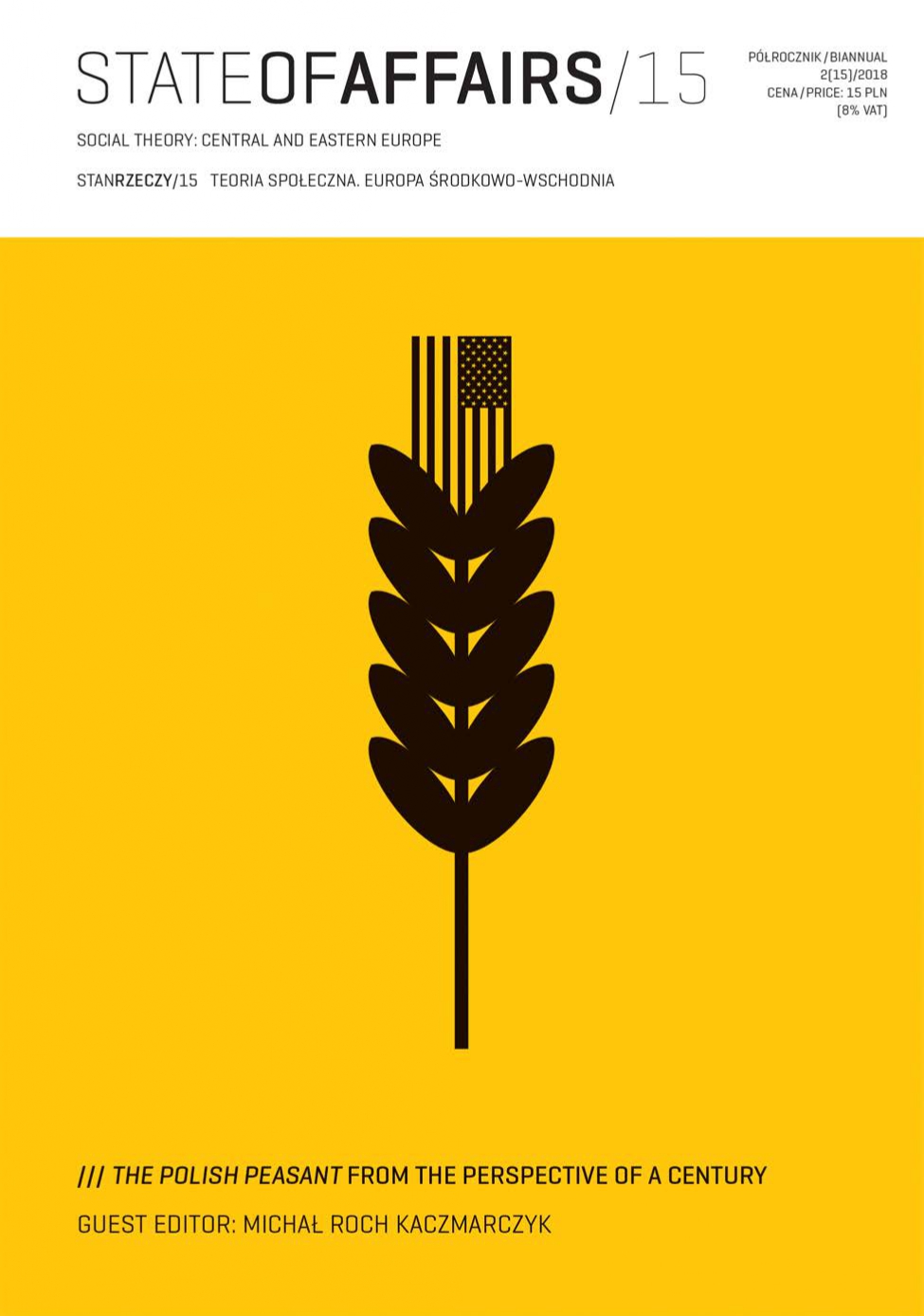

In this article the author shows how the exploding role of biology in William Thomas’s sociology and social psychology has changed. Since the beginning of his career, this researcher addressed numerous topics that involved both biological and social factors – he commented on the nature of gender, race, instincts, prejudice and evolution. His departure point was biologism, which proclaimed that innate predispositions are a variable independent of social processes. In the following years, Thomas changed his beliefs, recognising that it was culture and society that left its mark on physiological and psychological development. The changes in Thomas’s reasoning are described by the author against the background of past and present views on the relationship between society and the brain, claiming that his late views could resonate with today’s approaches.
More...
The present article represents a new attempt to read the first two volumes of The Polish Peasant in Europe and America from the perspective of the sociology of emotions. Reconstructing Thomas and Znaniecki’s approach to emotions entails defining the place of emotions (as emotional habits, feelings, and sentiments) in a theoretical framework of values and attitudes, and presenting how Thomas and Znaniecki took affectivity into account at the analytical level. The authors’ approach seems to correspond to the contemporary understanding of emotions, which avoids a separation between the individual and the social, the emotive and the cognitive.
More...
The aim of this article is to reread The Polish Peasant in Europe and America as a representation of the fears and modernisation fantasies of its era. I analyse the patterns of gendered family relations and ideals of femininity and masculinity constructed by Thomas and Znaniecki within the framework of rural–urban discourses. As I will show, in The Polish Peasant we find huge contradictions between the liberal and conservative perspectives presented. On the one hand, the authors introduce the concept of “organisation – disorganisation – reorganisation,” which is supposed to be scientific and thus non-ideological. On the other hand, the authors’ patterns of interpreting empirical data show numerous gender bias and patriarchal schemes. As a result, the authors create an opposition in which whatever is rural is the cradle of authenticity, of naturalised national and gendered family values, and whatever is urban is dangerous and demoralising due to escaping the former strong rural social control. In The Polish Peasant the authors thereby construct the “morally healthy” model of a national and patriarchal rural community of families untouched by individualisation and women’s emancipation. Such a model had a patriarchal division of gender roles within a religiously devout, strong (meaning indissoluble), multi-generational family. In The Polish Peasant we can find both a nostalgia – which was typical of its era – for a “pre-modern,” rural, conservative civilisation, and worry about the moral health of women in the urban world. However, it is an ambivalent nostalgia accompanied by a conviction of the inevitability of social change.
More...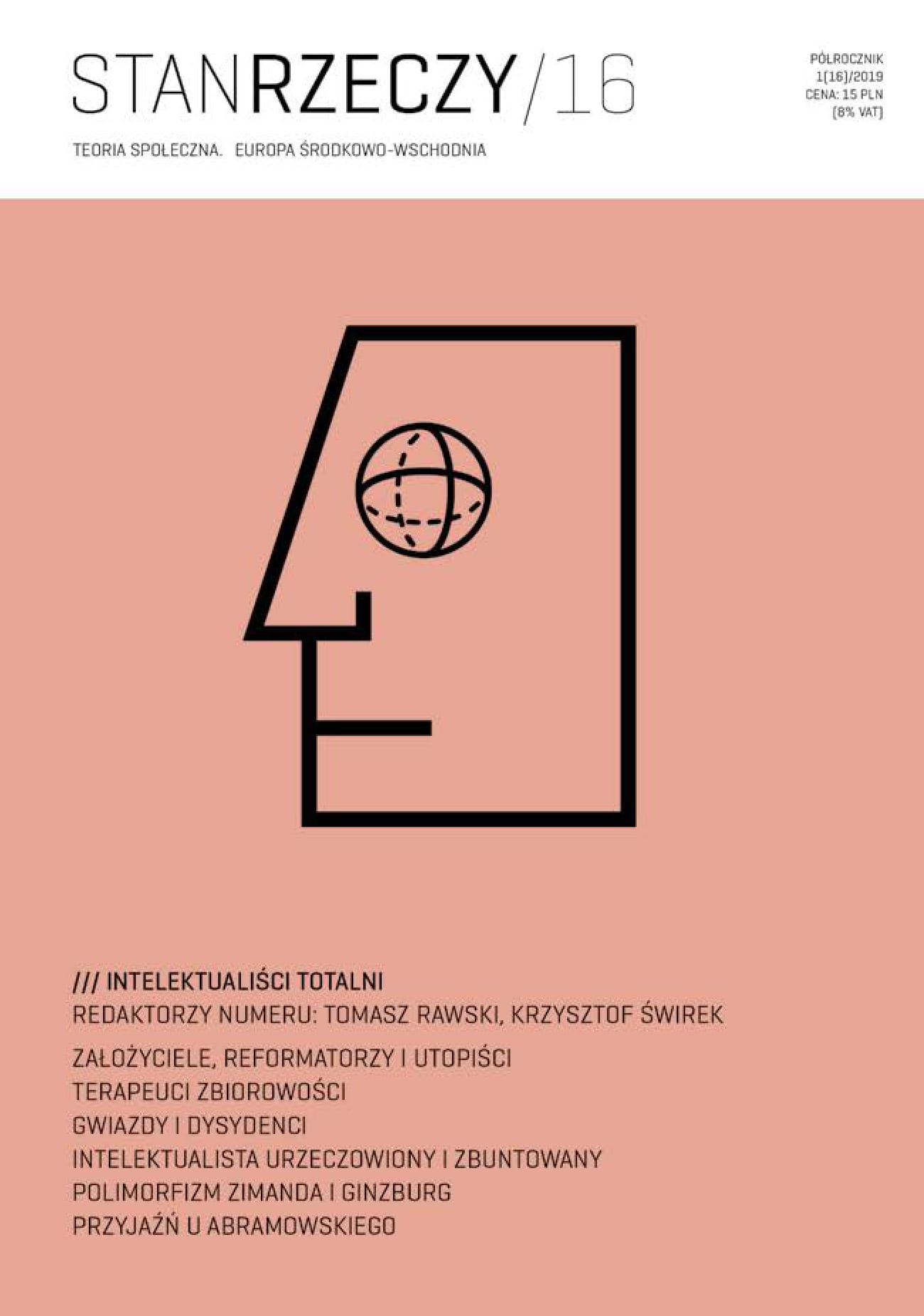
This article concerns Karl Mannheim’s theory of the intelligentsia and its importance for his sociology of knowledge. The terms used by Mannheim are defined in the introductory part of the article. The meaning of the words “intelligentsia” and “intellectuals” are based on diverse sociological theories. The famous concept of a “relatively unattached intelligentsia” derives from the assumption that this social stratum does not participate directly in the struggle between different group consciousnesses (utopiasa nd ideologies). As a result of historical processes it became alienated from society and was thus able to gain a wider understanding of historical truth. In the article, the type of intellectual who is seeking this truth is called a total intellectual, because such a person has the ability to see society as a totality. The concept of totality and its Hegelian sources are also analysed in the paper. Being distanced from the problems of class society is a resultof modern education and allows the intellectual to explore the holistic picture of the struggle between different worldviews. However, because of their education, intellectuals are seen as a foreign element in society. This feature of the intelligentsia is discussed in reference to Georg Simmel’s essay “The Stranger.” The final part of the article deals with the problem of the social role of total intellectuals, who should try to become engaged in politics despite their isolated position.
More...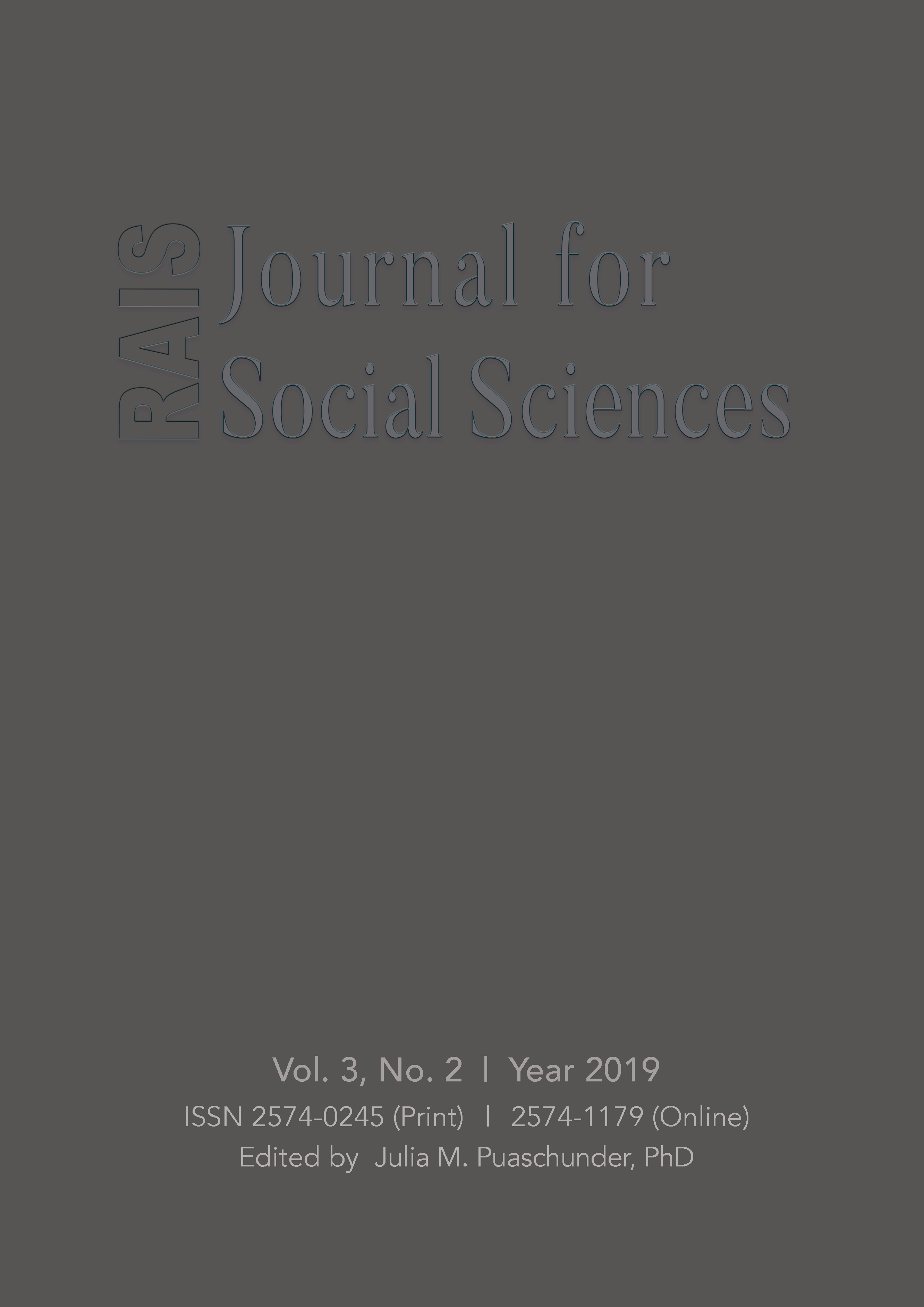
Suicide is one of the socially undesirable phenomena across the globe. As such, the United Nations via the World Health Organization has recognized suicide as one of the health issues, requiring serious attention globally and domestically. Although there are statistical evidences about the understanding of the phenomenon and its prevalence worldover, especially among the developed nations, much is left to be desired for among the developing nations in the understanding of the social antecedence of suicide and the sustainable mechanism to the phenomenon. Since the fundamental theoretical concept by Emile Durkheim, which has triggered unprecedented research on suicide, classification and identification of the social phenomenon responsible for suicide thought and action, is yet to be given a crystal distillation among the developing nations such as Nigeria. There are social indices facilitating suicide thought and actions, which are domicile with these nations according to Durkheim's classifications. However, little attempt has been made in theoretically capturing these social indices and their current and future implications to the nations involved. As a matter of fact, Nigerian government over the years has included suicide in principle, as one of the socio-health policy issue, requiring some level of emergency but lacks theoretically sound policy approach. Having identified the existence of lacuna between policy intention and the understanding of the socioeconomic and political elements inducing suicide as they are present in the country’s atmosphere, the present paper deals with the capturing of these elements in Durkheimian suicidological perspective for clear view and knowledge informed policy strategy.
More...